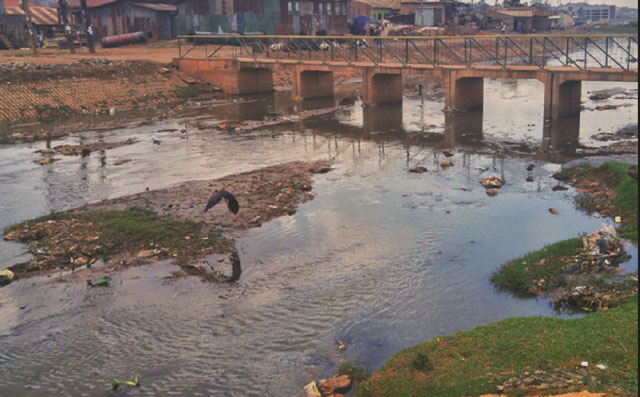
Brazzaville, Congo | Xinhua | As weekly cholera cases in the affected African countries decline, heavy flooding due to seasonal rains and tropical cyclones in southern Africa are raising the risk of the disease spreading and threatening to undermine outbreak control efforts, warned the World Health Organization (WHO) Thursday.
Newly confirmed cholera cases fell to 2,880 in the week that ended Sunday, a 37 percent decline compared with the week before when 4,584 cases were recorded. The number of deaths remained nearly unchanged, declining marginally from 82 to 81 in the same period. Twelve African countries are currently reporting cases, with South Africa, Tanzania and Zimbabwe the latest to detect cholera, said the WHO Regional Office for Africa in a statement.
In southern Africa, cholera outbreaks are occurring amid seasonal rains and tropical storms that have caused heavy flooding, notably in Malawi, which is now experiencing its worst-ever cholera outbreak aggravated by the heavy rainfall, warned the WHO.
“Countries have stepped up cholera control measures and early indications are promising. However, the heavy flooding and cyclonic events in parts of southern Africa risk fuelling the spread of the disease,” said Matshidiso Moeti, WHO regional director for Africa. “We’re reinforcing our support to countries to increase disease detection capacity, providing medical supplies and stepping up readiness in regions at risk of flooding.”
In Madagascar, which last reported cholera in 2000, recent cyclones, particularly Cyclone Cheneso that hit the country in January, have caused widespread flooding, some of which is subsiding slowly. The floods have led to an upsurge in malaria cases and increased the risk of cholera outbreaks. More than 470,000 people do not have access to health services after Tropical Cheneso destroyed at least 77 health facilities. In the aftermath of Tropical Cyclone Freddy that swept through the island on Feb. 21, more than 116,000 people have been affected and nearly 29,000 houses flooded or damaged in seven of the country’s 23 regions.
To support the cholera response, the WHO has deployed 80 experts to the affected countries. Over the past two months, the WHO has shipped 455 tonnes of critical cholera supplies to Malawi and Mozambique. The supplies have also been delivered to Burundi, the Democratic Republic of the Congo, Ghana, Kenya and Zambia to bolster outbreak preparedness and response.
The ongoing cholera outbreaks in Africa are being exacerbated by extreme climatic events and conflicts that have increased vulnerabilities, as people are forced to flee their homes and grapple with precarious living conditions.
 The Independent Uganda: You get the Truth we Pay the Price
The Independent Uganda: You get the Truth we Pay the Price





